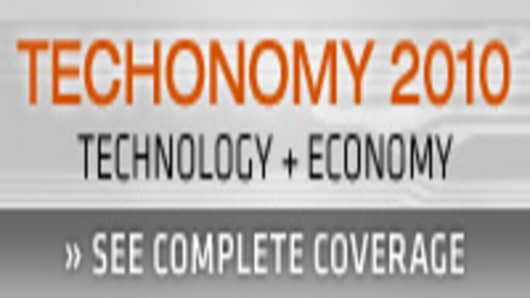The first panel examined the idea of Techonomy, with Google CEO Eric Schmidt, Lisa Randall, professor of theoretical physics at Harvard, Wired Magazine co-founder and "Senior Maverick" Kevin Kelly, and Deborah Hopkins, Citigroup's chief innovation officer.
Wired's Kelly provided the big picture perspective, saying "technology really is the most powerful force in the world." He described this web that technology is weaving—all the content and technology people are making are so interdependent, it forms its own "emergent thing," a network that has its own behaviors.
Kelly asks if this "thing" we're part of has agency, then what does this thing want? He says we're all both subject and object to technology—masters and creators of it, and children of it, and we can't escape that dichotomy. Kelly says that the beauty of "techonomy" is that it is not a zero sum game.
Kirkpatrick, who moderated the panel, asked for Schmidt's perspective, calling Google the ultimate technomic company. Schmidt says he spends most of his time assuming the world is not ready for the technologic revolution that's happening to them relatively soon.
What does he mean? That every two days we create as much data as we created in all history up until 2003. A lot of that data is user generated, and Schmidt says a lot of that comes from "people describing enormous amounts of things about themselves."





